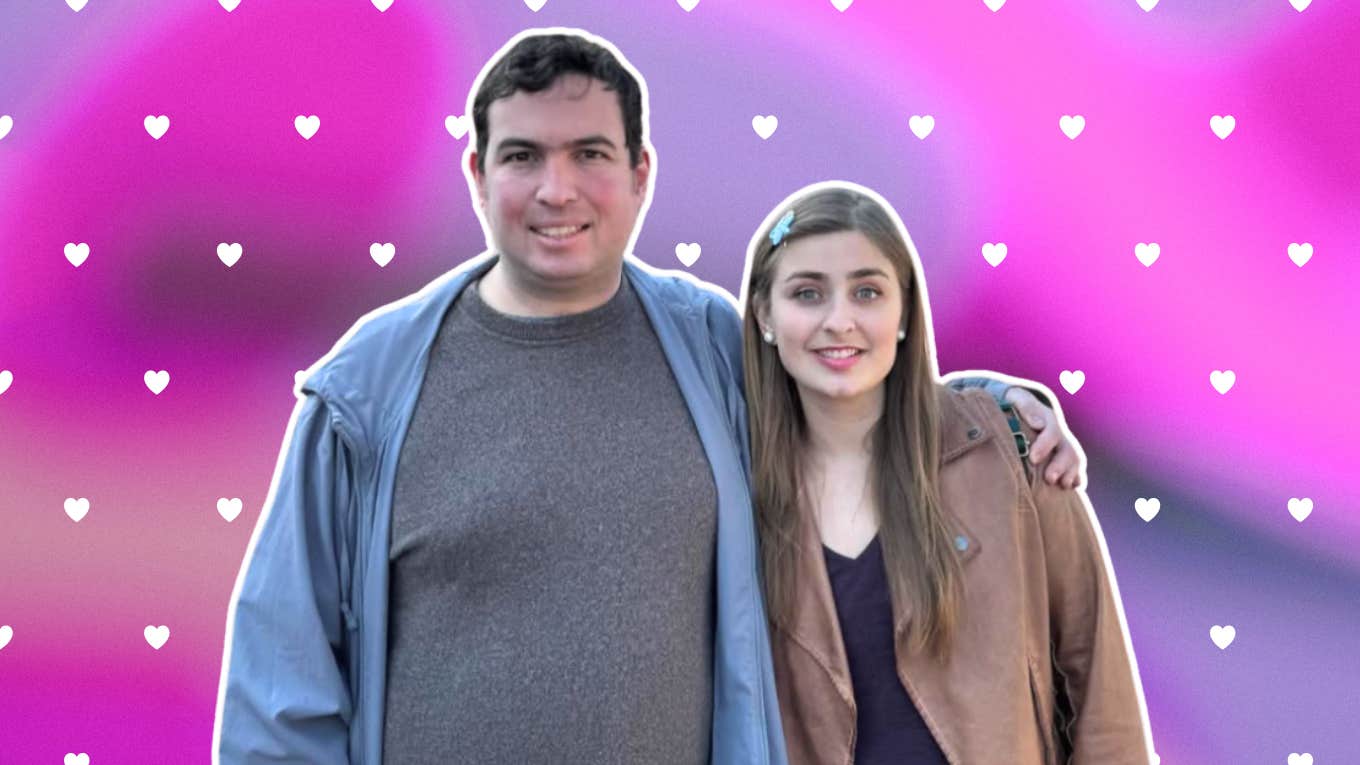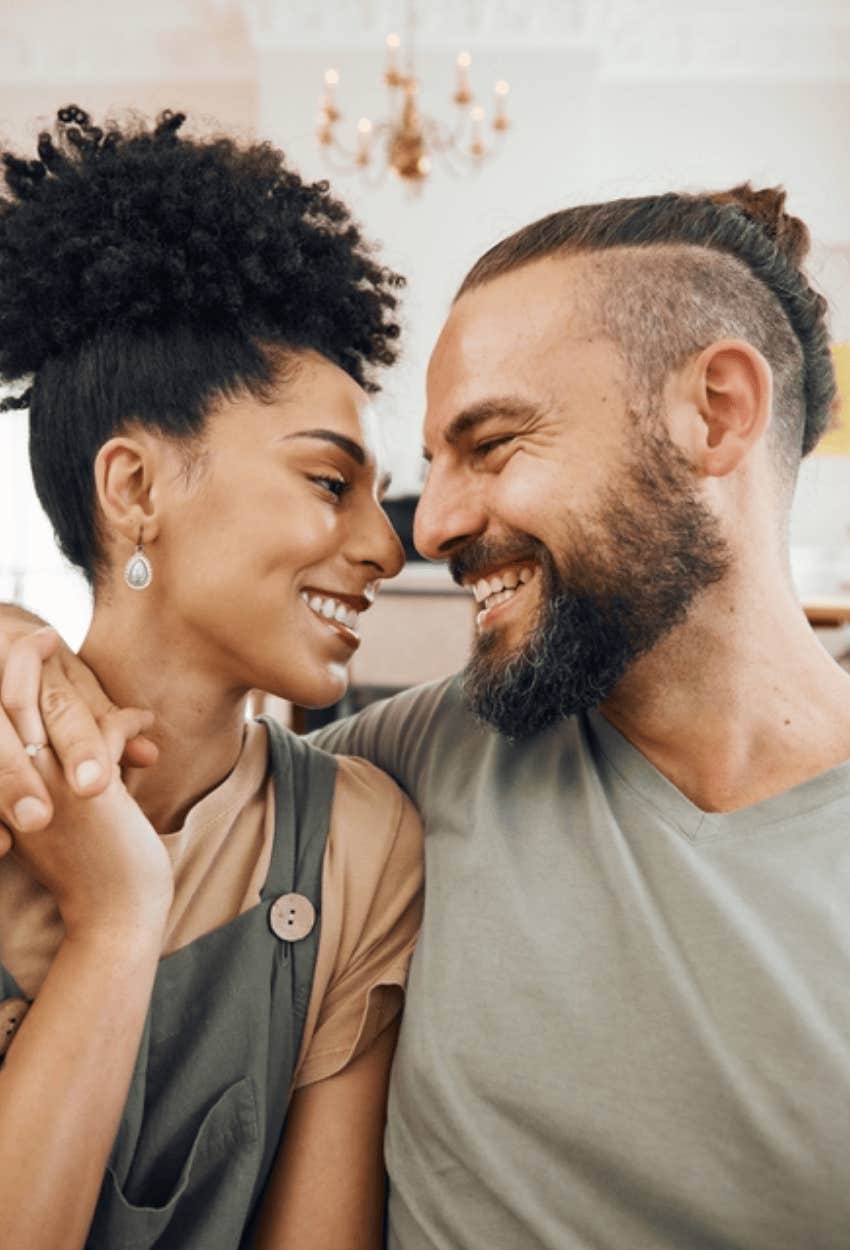6 Valuable Dating Tips ‘Love On The Spectrum’ Couples Figured Out Before The Rest Of Us
We could all take a note or two from this cast!
 @hatsbyabbey | Instagram | YourTango
@hatsbyabbey | Instagram | YourTango Ego seems to play a big role in sabotaging modern dating. It can create a wall between romantic partners, making it difficult for them to provide one another with safety, reassurance, and proper love. Thankfully, the cast members of Netflix’s hit reality dating show, "Love On The Spectrum," don’t let their egos spoil their chances at developing meaningful romantic relationships. The show follows adults on the autism spectrum who are seeking love, and they are often paired with other people who are also on the spectrum.
If the cast has made one thing clear to audiences, it is that they understand what they need, what their partners need, and how they can make it all happen — and honestly, we could learn a thing or two from all of them when it comes to dating and love.
Here are six valuable dating tips from ‘Love On The Spectrum’:
1. Don’t settle
 fizkes | Shutterstock
fizkes | Shutterstock
Some neurotypical people fear that they are running out of time to find love and often find themselves settling with someone who doesn't meet their needs. However, the "Love On The Spectrum" cast members know their worth and what they want out of a relationship from the beginning.
Tanner Smith, one of the most beloved cast members who is known for his signature smile, told producers from the very beginning that he is seeking a partner who is “very talkative” like he is.
During his debut on the second season of the show, he was paired with Kate, and while the two appeared to have a good time with each other at their restaurant and zoo dates, it was clear that she did not match Tanner’s energetic personality.
He revealed in season 3 that he politely turned Kate down when she asked him to be her boyfriend and later informed his date, Shyann, that he just wanted to be friends after a first date where he was carrying most of the conversation.
While Tanner makes it clear that there is nothing necessarily wrong with these women’s personalities (he thinks that they are kind and beautiful!), they simply could not give him all he wanted in a romantic relationship and politely refused to settle.
His sister, Midge, even praised Tanner for his honesty, noting that many people in the modern dating world often struggle with the things that come naturally to him.
2. Make your intentions clear
 Valery Siddnykov | Shutterstock
Valery Siddnykov | Shutterstock
While autism is a spectrum and not everyone who is autistic will demonstrate the same behavior, one of the characteristics of autism is having a direct communication style.
Some people on the spectrum communicate in a straightforward, literal way — often lacking the social filters that neurotypical people use. However, this just makes them all the more honest, which is essential in dating.
In season 2, we saw cast member Connor Tomlinson go on a date with Sasha, whom he matched with at a speed-dating event in a previous episode. Even though the two appeared to have a nice time on the date, Connor was not feeling a romantic connection. One week later, he called Sasha to let her know that he would like to continue their relationship as friends.
“I’ve enjoyed seeing you and getting to know you better, [but] I was thinking maybe we should continue on this relationship as just friends,” he told her, adding that it was not a decision that he made “on a whim.”
Connor’s mom, Lise, couldn't help but get emotional, bursting with pride for her son who did what some neurotypical men often struggle with. “It makes a girl feel so much better to know where she stands and not stand there wondering, ‘What’s going on?’” she said. “And it takes a lot of character and integrity and respect to do what you just did.”
She even told Connor’s brother, Jack, that he should take a few notes on his brother’s communication skills!
3. Find someone who shares your values
 Roman Samborskyi | Shutterstock
Roman Samborskyi | Shutterstock
Dating someone who shares the same values as you can lead to a more fulfilling and lasting relationship. If you plan on being with someone long-term, it is important to know if they share similar goals and hopes for the future that you’ll be able to achieve together.
James Jones, a cast member on "Love On The Spectrum" since its first season, has made it abundantly clear that while he is looking for love, he does not wish to ever become a parent. While on a date with Jasmine in Season 2, James learned that one of her goals is to start a family someday.
At the conclusion of the date, James told her that while he enjoyed their time together, he did not want to invest in a romantic relationship due to their differing values. “I know I don’t want to have children, and that’s something I’ve been certain about for much of my life,” he told Jasmine. “If you want to have children, you absolutely should. It would be wrong of me to get in the way of that.”
When partners have aligned goals, they can work toward common objectives, creating a sense of purpose in the relationship. While dating, it is important to ask these questions to determine whether or not someone will be a good romantic match.
4. Always try to compromise
 Perfect Wave | Shutterstock
Perfect Wave | Shutterstock
No two partners in a relationship will be exactly alike. Even if you both may have a lot in common, it is normal to have separate interests. You may like videogames while your partner enjoys watching movies.
However, in a relationship, you must be willing to compromise. It demonstrates empathy and respect for your partner, fostering a deeper sense of connection and trust.
In the sixth episode of Season 3 of "Love On The Spectrum," newcomer Madison Marilla went on a beach date with Tyler after a successful first date. While discussing their interests, Madison asked Tyler if he would be willing to watch her favorite shows for her, to which he responded, "Absolutely!"
She then asked him if there was anything she could do for him that he liked, and he suggested going to NASCAR races. Madison said, “I would, even though it’s not my cup of tea. I would do it for you.”
It’s all about compromise! Even if you may not enjoy the activities your partner is into, participating in them every once in a while shows them that you genuinely care about what makes them happy.
5. Be respectful of your partner’s boundaries
 PeopleImages.com - Yuri A | Shutterstock
PeopleImages.com - Yuri A | Shutterstock
Boundaries help determine what is okay and what is not in a relationship. Even if your partner may have different boundaries than you, it is important to respect them.
One of the couples featured in the third season of “Love On The Spectrum” is Dani Bowman and Adan Correa, who met at a speed dating event in the first season.
After a year of being together, Dani made it clear to Adan that she was ready to be more intimate with him. However, after some consideration, Adan decided that being intimate conflicted with his personal beliefs.
Even though Dani was disappointed, she assured him that she respects his boundaries.
While the two split due to their differences, they never shamed or overstepped each other’s boundaries — something that some neurotypical couples have trouble with.
6. Be your partner’s safe space
 PeopleImages.com - Yuri A | Shutterstock
PeopleImages.com - Yuri A | Shutterstock
Your partner should not only be your best friend, but they should also be your safe place. For Abbey Romeo, who has appeared on “Love On The Spectrum” since season one, her boyfriend David is clearly her safe space.
He consistently reminds her to breathe and have patience during stressful moments and even covers her ears to block out the sound of screaming babies, which is a painful trigger for her.
Abbey beautifully shared just how loved and safe her boyfriend of nearly four years makes her feel in an original song she wrote and sang for him in the third season finale.
And we must admit, the lyrics, “You understand me, remind me to breathe. Being with you is easy, you’re just who I need. I know sometimes I’m in my head, but when I'm with you I’m in the world instead,” hit us right in our feels!
Megan Quinn is a staff writer with a bachelor's degree in English and a minor in Creative Writing. She covers news and lifestyle topics that focus on justice in the workplace, personal relationships, parenting debates, and the human experience.

